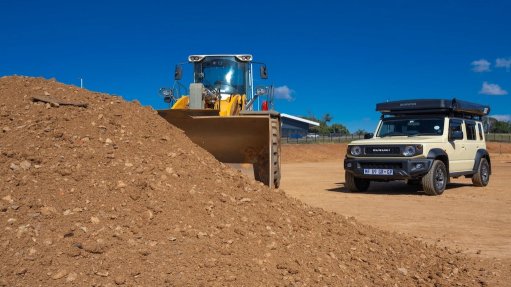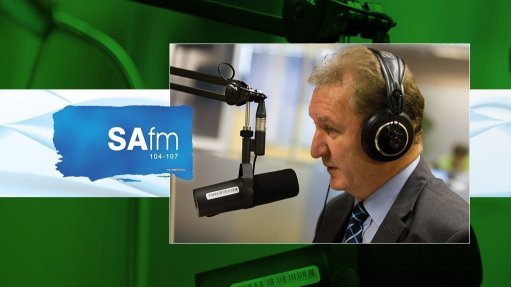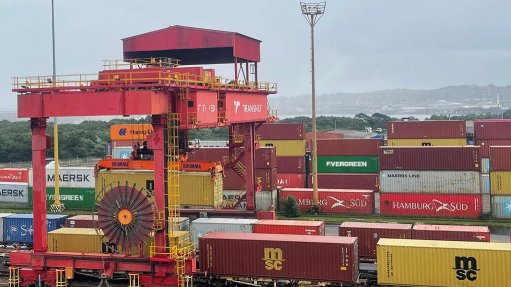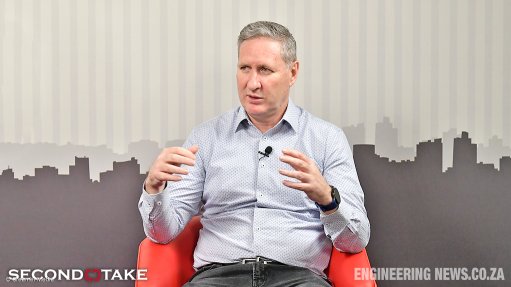No time to lose in considering carbon credit savings
This article has been supplied.
South African businesses have been warned that they are taking too long to cash-in on the savings they can achieve through carbon credits, and to appreciate the effort which will be needed to master the process.
With the Carbon Tax burden in South Africa set to climb and climb, these credits incentivise companies to invest in green projects. They can earn credits on eligible projects, and these can be used to cut their tax liability, or the credits can be traded locally and internationally.
“The time to act is now,” said Duane Newman, director at Cova Advisory. He was chairing a webinar with speakers from Cova Advisory, WeAct (carbon trading house) and Climate Legal to educate businesses on the opportunities of carbon credits, and also on the administrative and legal detail which firms will need to master.
“Firms need to start thinking long-term. The Carbon Tax gives companies a long-term perspective on the value of carbon credits, and this should form a central element of their strategic planning,” he warned.
“The question executives must ask is: how can my company benefit, and is there a global trading market? We must look at the global context.
“Issues around carbon emissions, the green economy and climate change are global issues. A lot of global discussion is underway on reducing the emissions of countries and businesses.”
Newman explained there are two main mechanisms for carbon pricing. One is a carbon tax, and the other a ‘cap and trade’ system where you create a trading mechanism. There is a trading price around carbon credits, set by the market.
There are 64 global carbon reduction mechanisms, with a 50-50 split between taxes and emission reduction schemes.
In 2019 about US$45bn was traded in the carbon trading market. About 70 countries have committed to net zero emissions by 2050, and so carbon trading is set to explode in importance.
“COVID has reduced emissions everywhere,” said Newman. “Airline industry emissions dropped significantly, due to a huge reduction in flights.
“A key challenge is how countries and companies in this post-COVID world can stimulate growth with the use of carbon pricing? Many companies want to grow their organisations responsibly.”
He advised that a key first step is to understand what is meant by a carbon credit.
A carbon credit is a tradeable commodity that is created from a project that reduces carbon emissions. These credits can be traded.
Lloyd Vas, the head of carbon trading at WeAct noted during the webinar that many countries are introducing Carbon Taxes, in line with Paris Agreement obligations. The number of carbon credit programmes is also increasing.
“When a carbon price is introduced, businesses are incentivised to reduce emissions,” he said.
“The South African Carbon Tax is off to a very good start. The first compliance deadline was October last year with the next one in July 2021.
“There are 5.4m offsets (credits) that have been listed in the South African system to date. Some 3m were returned, so 2.4m offsets are available in the registry.”
Zelda Burchell, a manager in Cova Advisory’s energy and carbon section recalled that when the Carbon Tax first kicked in “most companies did not have the right strategy in place for carbon credit use. It is so important for companies to be proactive and ensure they have a sustainability strategy in place which includes which credits the company can use.”
“Eligible projects to earn carbon credits cover waste management, forestry and land use, energy efficiency, and renewable energy. Projects have to be within South Africa. You cannot double-claim by also applying for the energy efficiency tax rebate incentive known as S12L.”
Lloyd Vas said the most common types of carbon credit projects before the carbon tax were to reduce greenhouse gases from fertiliser and explosives production.
Much was in dealing with landfill gas - flaring or capturing methane.
“From June 1st 2019, projects have had to fall outside the Carbon Tax net. New projects are in forestry, land-use change and the waste sector.”
Participants in the webinar were warned by Andrew Gilder and Olivia Rumble from Climate Legal of the lengthy approval, environmental and legal processes and the complexities of the carbon credit contracting process.
Comments
Press Office
Announcements
What's On
Subscribe to improve your user experience...
Option 1 (equivalent of R125 a month):
Receive a weekly copy of Creamer Media's Engineering News & Mining Weekly magazine
(print copy for those in South Africa and e-magazine for those outside of South Africa)
Receive daily email newsletters
Access to full search results
Access archive of magazine back copies
Access to Projects in Progress
Access to ONE Research Report of your choice in PDF format
Option 2 (equivalent of R375 a month):
All benefits from Option 1
PLUS
Access to Creamer Media's Research Channel Africa for ALL Research Reports, in PDF format, on various industrial and mining sectors
including Electricity; Water; Energy Transition; Hydrogen; Roads, Rail and Ports; Coal; Gold; Platinum; Battery Metals; etc.
Already a subscriber?
Forgotten your password?
Receive weekly copy of Creamer Media's Engineering News & Mining Weekly magazine (print copy for those in South Africa and e-magazine for those outside of South Africa)
➕
Recieve daily email newsletters
➕
Access to full search results
➕
Access archive of magazine back copies
➕
Access to Projects in Progress
➕
Access to ONE Research Report of your choice in PDF format
RESEARCH CHANNEL AFRICA
R4500 (equivalent of R375 a month)
SUBSCRIBEAll benefits from Option 1
➕
Access to Creamer Media's Research Channel Africa for ALL Research Reports on various industrial and mining sectors, in PDF format, including on:
Electricity
➕
Water
➕
Energy Transition
➕
Hydrogen
➕
Roads, Rail and Ports
➕
Coal
➕
Gold
➕
Platinum
➕
Battery Metals
➕
etc.
Receive all benefits from Option 1 or Option 2 delivered to numerous people at your company
➕
Multiple User names and Passwords for simultaneous log-ins
➕
Intranet integration access to all in your organisation

















